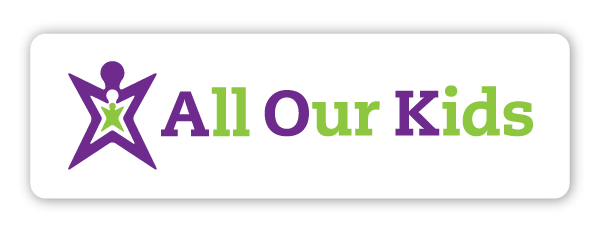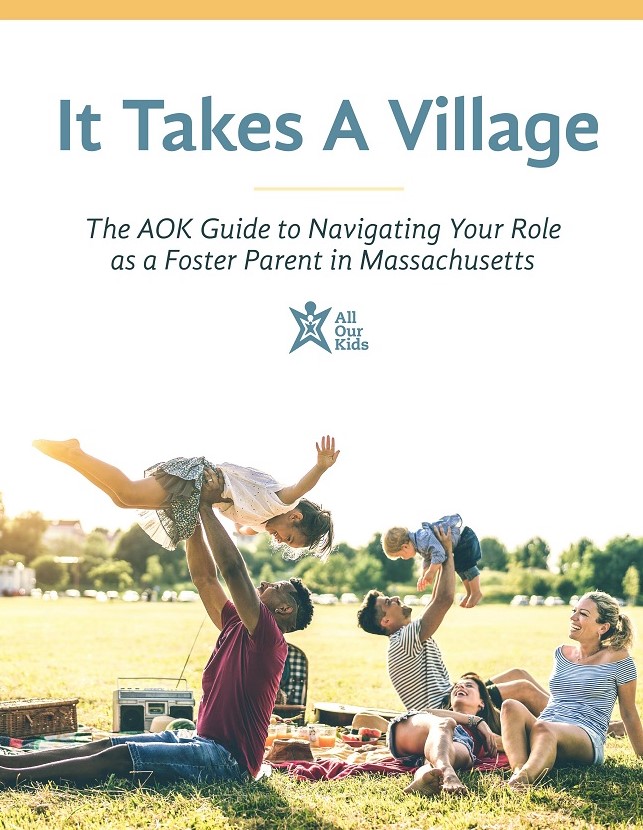Who Are All These Social Workers?
The Massachusetts Department of Children and Families (DCF) is an enormous government bureaucracy, with a number of important responsibilities that support the safety and wellbeing of children and families in Massachusetts.
Although foster care is a large part of DCF’s activities, it is by no means the only part. The majority of families receiving DCF services and supports have not had their children removed from their care, and the hope is that because of those services and supports, they won’t need to be removed. However, here we focus exclusively on the foster care (and adoption) system in DCF and explain who the important players are. In another rpost, you can read more about how to partner effectively with DCF and advocate for yourself and your family.

Family Resource Worker
Your Family Resource Worker (“resource worker” or FRW) is your primary contact at DCF. Their role is to see you through the licensing process, support you and answer questions, approve any babysitters you might need approved, and help interface between you and other DCF staff. Resource workers will visit your home monthly for the first 6 months of your time as a foster parent, and then every other month after that. No matter how many foster children you have, from how many different birth families, you will only have one resource worker. All family resource units have a family resource supervisor with whom they work closely.
DCF Investigator
When a child is first placed in foster care, there is a period of approximately 10 business days when DCF is investigating the case and trying to piece together information about the family. This might include the names of relatives with whom a child could be placed, the identity of a child’s parent who might be out of the child’s daily life, or other important key facts. During this period, you might interact with a DCF investigator because they are also responsible for ensuring that visitation occurs between birth parents and their children until such time as an ongoing social worker is assigned to the case.
Ongoing Team
An ongoing social worker’s primary responsibility is to work with the entire birth family, in order to help support birth parents’ efforts in regaining custody of their children. However, if a child’s goal is reunification (always the case initially), the ongoing social worker also acts as the child’s social worker. They should provide information about the child’s history and needs (to the extent that they know this information), and will be the main contact in scheduling parent/child visits ("which have recently been renamed to "Family Time"). This social worker will ask about your child’s adjustment to your home, medical needs and visits, daycare or school placements, and other matters. Because ongoing workers are assigned to birth families, you might be working with more than one ongoing social worker, if you have children from more than one different birth family. All ongoing social workers also have supervisors, and work as part of teams. For example, they will sometimes supervise Family Time for each other if one of them needs to be in court. Although you should get advance notice of a change in staffing for transportation or visit supervision, this isn’t always the case.
Adoption Social Worker
If a child’s goal changes to adoption, an adoption social worker (sometimes just referred to as “adoption worker”) is assigned to the child. At this point, the adoption worker takes over all responsibilities associated with the child, and the ongoing worker focuses exclusively on birth parents’ support needs (including supervising Family Time) until parental rights are terminated (if the case goes to termination). The child’s adoption worker will visit your home monthly to check on the child’s wellbeing and progress, answer questions, and provide information about the case. If a case moves toward adoption, the adoption worker will put together the adoption packet that is submitted to the court.
Medical Social Worker
Every office has access to a medical social worker, who is your best liaison to children’s medical, developmental, psychiatric, and dental care. They can help with any medical issues, including: attaining medical history from a previous provider, coordinating with MassHealth, coordinating care, and providing information about specific health needs of the children in your care. Medical social workers have been an incredibly beneficial resource for foster parents since DCF created the position a few years ago.
Supervisors, Managers, and Directors
Every worker you encounter has a supervisor, and that supervisor has a supervisor. You can read more about the DCF chain of command here, but suffice to say if your needs are not being met at the level of the family resource or ongoing/adoption worker, there are others you should contact: The supervisors, the area program managers, and the area directors.
Want to learn more about navigating your role as a foster parent in Massachusetts?
It Takes a Village is the first and only comprehensive guidebook available. Order your copy today!

